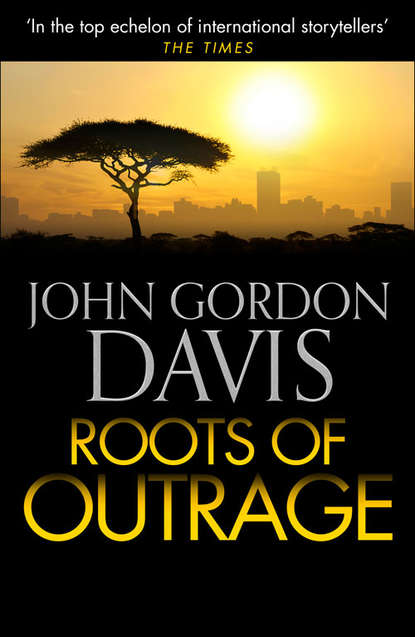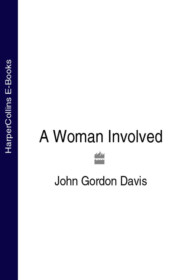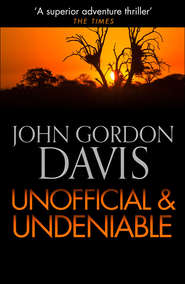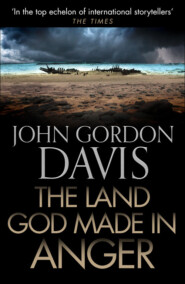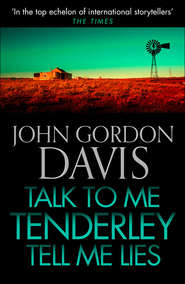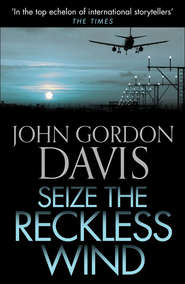По всем вопросам обращайтесь на: info@litportal.ru
(©) 2003-2024.
✖
Roots of Outrage
Автор
Год написания книги
2018
Настройки чтения
Размер шрифта
Высота строк
Поля
‘Then so is all sexual intercourse unless the parties are married! Okay – if that is the will of God, I challenge this government to make all sexual intercourse outside wedlock a crime! I defy them! Come on! Make a total laughing stock of yourselves!’
The Speaker pounded his gavel. ‘I warn you, Mr Mahoney, that personal insults will not be tolerated.’
‘“Personal insults”?’ George Mahoney echoed, astonished. ‘But these laws are personal insults, Mr Speaker, and just as insulting, just as humiliating, just as unchristian, just as stupidly cruel, are the laws governing public places! Petty apartheid. The Separate Amenities Act is the most conspicuous form of insult, made in public for all the world to see! The petty apartheid, designed by petty minds and strictly enforced by petty policemen, the notices that insist on separate amenities like public lavatories, benches, playgrounds, beaches, railway coaches, entrances to public buildings, separate libraries, cinemas, bars, hotels, eating establishments, buses – even separate elevators, for God’s sake, Mr Speaker!’
‘The Honourable Member for Transkei will kindly not blaspheme!’
‘If that is blasphemy, I repent. But the legislation is a tremendous blasphemy itself. How unchristian it is to say to our fellow citizens: You are not good enough to sit next to me on a train or bus or a barstool or in a restaurant or to swim in the same surf or read in the same library –
‘They have their own amenities, a government backbencher shouted, ‘separate but equal!’
‘“Equal”?’ George echoed. ‘Then whites are much more equal than non-whites in this mad-hatter country of ours, Mr Speaker! Because any fool with one eye can tell you that not only are all the non-white amenities inferior to the whites’, but there are much fewer of them! Yet’ there are many more non-whites than whites! This is equal? The honourable member should look up the word “equal” in the dictionary, if he has one. He could look up the word “Christian” at the same time and really have a confusing day.’
He shook his head. ‘Why, Mr Speaker, does this government insist on insulting the majority of the populace in this manner? Why does this government insist on courting hatred? On courting rebellion? On courting its own destruction?’ He looked around, his bushy eyebrows raised. ‘Is it because the government is so stupid that it believes that political chaos will ensue if a non-white sits next to me on a bus, or barstool, or enjoys the same surf, or buys his ice-cream at the same kiosk, or his postage stamp at the same post office window? Is it credible that this government is so stupid, when you bear in mind that there are certain things that even this government has failed to segregate – roads for example. Sidewalks. Pedestrian crossings. Traffic lights. Shop windows. Shops – it is still legal for a black lady to walk into Woolworths, stand beside me and buy the same socks I do – though she better not try subversive stuff like that if she buys a postage stamp, no sir!’
He nodded theatrically, and dropped his voice to a growl. ‘Yes, of course it is credible, and this government probably hopes to segregate the sidewalks, roads, and Woolworths too when their Clever Chaps Department can dream up the tricky legislation.’ He beamed sadly at the prime minister; then replaced his scowl and thundered: ‘But that stupidity is only half of the appalling unchristian reason! The other half is even more awful, and it will be the downfall of this whole country. And that reason is racial prejudice, Mr Speaker!’ He glowered around. ‘Indeed racial hatred. Belief in racial superiority! It is the government’s belief that they are the master race and that it is wrong for a non-white person to sit beside them in a bus, or swim in the same surf! It is a belief in Baaskap, in Bosshood – I am the boss, and you inferior mortals are not as human as I, not worthy to be near me except as my servant, my garden boy, my child’s nursemaid, my farm labourer, the man who shovels rocks on the mines!’ He jabbed his finger again. ‘That is the rotten basis of this petty apartheid – apart from the towering political and economic injustices of grand apartheid – and that rotten base will rot the whole country, for our racial prejudice is breeding racial hatred in return – the Afrikaner has sown the seeds of his own destruction!’
Mutters and groans from the government benches. George Mahoney cried: ‘Oh yes, Mr Speaker – we’ve already had the massive Defiance Campaign in 1952 when hundreds of thousands embarked on Gandhian civil disobedience to throw the administration into confusion – for months we had thousands of protesters defying apartheid and curfews and pass-laws so as to invite arrest – over eight thousand people were convicted and thirty-two people lost their lives in confrontations with police, including six whites, including a nun, Sister Aiden –’
‘And who killed her?’ demanded a backbencher. ‘The very same blacks she was trying to help – brutally murdered her, cut out her liver for medicine. Savagery killed her, not apartheid –’
‘That type of savagery,’ George Mahoney cried, ‘is what apartheid will provoke, again and again – confrontation and mob violence!’ He glared around the chamber. ‘What a tragedy! And what a waste. Of energy and money! The vast body of law that this mad science has built has required tremendously hard work by the police, by the courts, by the legislator, who should have his well-paid mind on beneficial projects, not destructive ones. It’s all a profligate waste of money which could be spent on black betterment schemes, making them better citizens – instead of making them our enemies! And not only is it a stupid waste, not only is it dangerous, it brings the whole nation into international disrepute!’ He paused, glowering at the government benches, then ended: ‘For these compelling reasons, Mr Speaker, I move a vote of no confidence in this government.’
Luke Mahoney wanted to burst into applause.
2 (#ulink_fa84b819-913e-51e2-acf0-cd71aca18d8d)
Out there in the tribal lands there had been troubles for years arising out of the Bantu Authorities Act, which resulted in indirect Pretoria rule through subservient chiefs; but in the black urban areas resistance to apartheid had waned after the failure of the Defiance Campaign. And so the ANC and Indian Congress issued a ‘Call to a Congress of the People’ to be convened on 26 June 1955, at Kliptown, near Johannesburg. Volunteers across the land canvassed opinions and collected grievances at furtive meetings, and on the appointed day three thousand delegates of all races from scores of organizations converged on the football stadium at dusty, wintry, joyless Kliptown.
Amongst them was a beautiful young Indian schoolgirl, called Patti Gandhi, who had journeyed up from the faraway Transkei by bus on her own initiative to listen to her heroes, in particular to hear a young man called Nelson Mandela who hailed from the same part of the land as she.
In the centre of the football pitch on a platform with microphones stood the convenors; about them the sea of delegates. The proposed Freedom Charter was read out, each clause followed by a rousing speech from the platform. That night Patti Gandhi read it aloud to herself, over and over, until she knew it by heart.
WE THE PEOPLE OF SOUTH AFRICA DECLARE FOR OUR COUNTRY AND THE WORLD TO KNOW:
That South Africa belongs to all who live in it, black and white, and that no government can justly claim authority unless it is based on the will of all the people;
That our people have been robbed of their birthright to land, liberty and peace by a form of government founded on injustice and inequality and that our country will never be prosperous or free until all our people live in brotherhood …
That only a democratic state can secure all their birthright without distinction of colour, race, sex or belief.
And therefore we, the people of South Africa, black and white together – equals, countrymen and brothers – adopt this Freedom Charter:
THE PEOPLE SHALL GOVERN!
Every man and woman shall have the right to vote …
ALL NATIONAL GROUPS SHALL HAVE EQUAL RIGHTS!
… all apartheid laws and practices shall be set aside.
THE PEOPLE SHALL SHARE IN THE COUNTRY’S WEALTH!
… the mineral wealth beneath the soil, the banks and monopoly industry shall be transferred to the ownership of the people.
All other industry and trade shall be controlled …
THE LAND SHALL BE SHARED AMONG THOSE WHO WORK IT!
… and all the land re-divided … to banish famine and land-hunger … All shall have the right to occupy land wherever they choose …
ALL SHALL BE EQUAL BEFORE THE LAW …
No one shall be imprisoned, deported or restricted without a fair trial …
ALL SHALL ENJOY EQUAL HUMAN RIGHTS!
… all shall be free to travel from countryside to town … and from South Africa abroad; pass laws, permits and all other laws … shall be abolished.
THERE SHALL BE WORK AND SECURITY! THE DOORS OF LEARNING … SHALL BE OPENED! THERE SHALL BE HOUSES, SECURITY AND COMFORT! THERE SHALL BE PEACE AND FRIENDSHIP …
Let all who love their people and their country now say, as we say here:
THOSE FREEDOMS WE WILL FIGHT FOR, SIDE BY SIDE, THROUGHOUT OUR LIVES, UNTIL WE HAVE WON OUR LIBERTY!
The Freedom Charter was adopted by popular acclaim, though a group called the Africanists rejected it because of its multi-racialism: they wanted Africa for the Africans, and they broke away from the ANC to form the Pan Africanist Congress. The next day the people reconvened. That day the South African police struck, with a crack of thunder.
Suddenly the stadium was surrounded, and into the mass went the police. They photographed every individual, and they seized thousands of documents, looking for evidence of treason. Hundreds were arrested. Thus began the infamous Treason Trial.
It was held in the cavernous Johannesburg Drill Hall, remodelled to provide a massive dock to hold 156 accused, sitting in tiers. One of them was the young Xhosa lawyer called Nelson Mandela. The trial was to last for five years, the longest trial in history.
In those days the wind of change was starting to blow in Africa. In Kenya the Mau Mau rebellion was raging; in Ghana the Great Redeemer, Kwame Nkrumah, was demanding independence from Britain, proclaiming himself leader of the Pan African movement; in Nigeria and Tanganyika independence was being loudly demanded; in the Federation of Rhodesia and Nyasaland a policy of ‘Partnership’ was being attempted but black politicians were demanding immediate majority rule. The Cold War was raging and Russia was providing arms and training, inspiration and indoctrination to the black nationalists. The Western colonial powers, exsanguinated by two world wars, alarmed by the Cold War, had lost their will to govern, appeasement was becoming the order of the day, and the white settlers were afraid, and angry. But in South Africa the government said it had the answer to this Swart Gevaar, this Black Peril: they were building a model state which would keep the races apart, each to develop in its own way, enforced by kragdadigheid, strength-to-do, and South Africa would be the bastion against communism.
In those days the Mahoneys lived in a big old Victorian house near the centre of Umtata, capital of the Transkei. The garden occupied half a suburban block and Mrs Mahoney hired black convicts, called Tame Bandits, from the prison to keep it neat. George Mahoney had his law office in Main Street, which was wide enough to turn a wagon drawn by sixteen oxen, and there were hitching posts for horses. There were always many Xhosa in their red blankets in Main Street, smoking their long pipes, looking in the Victorian shop windows. The big old Victorian courthouse was set in large lawns, where crowds of Xhosa would sit, waiting for court to begin. On the benches outside George Mahoney’s office there were always dozens of Xhosa, waiting to consult the white lawyer who always won cases.
‘But there’s no money in being a small-town attorney, son,’ George told Luke. ‘None of my clients has much money. You’re going to be an advocate, son, in the big city, get amongst the big stuff.’
‘But he doesn’t want to be a lawyer,’ Mrs Mahoney said, ‘he’s talking about being a journalist.’
‘That’s this week. Next week it’ll be law again. I tell you, this son of ours is going to be a bloody good lawyer.’
‘But I don’t think it’s right for a boy of fourteen to be spending his afternoons and holidays in a stuffy law office.’
‘If I was a farmer my boy of fourteen would be ploughing the land. If I was a shopkeeper he would be helping behind the counter. There is no finer training for a law student than to sit in my office and watch how it’s done. Life in the raw! Crime, divorce, debt-collecting, he’ll have seen it all by the time he leaves school. The boy’s a natural.’
‘Well, I’m sorry but I really don’t think it’s right to spend so much time in court, hearing all those sordid details –’
‘The world is sordid and the best place to learn about it is the courtroom – the forum of human drama, learning to sift the wheat from the chaff, strong points from weak points –’





